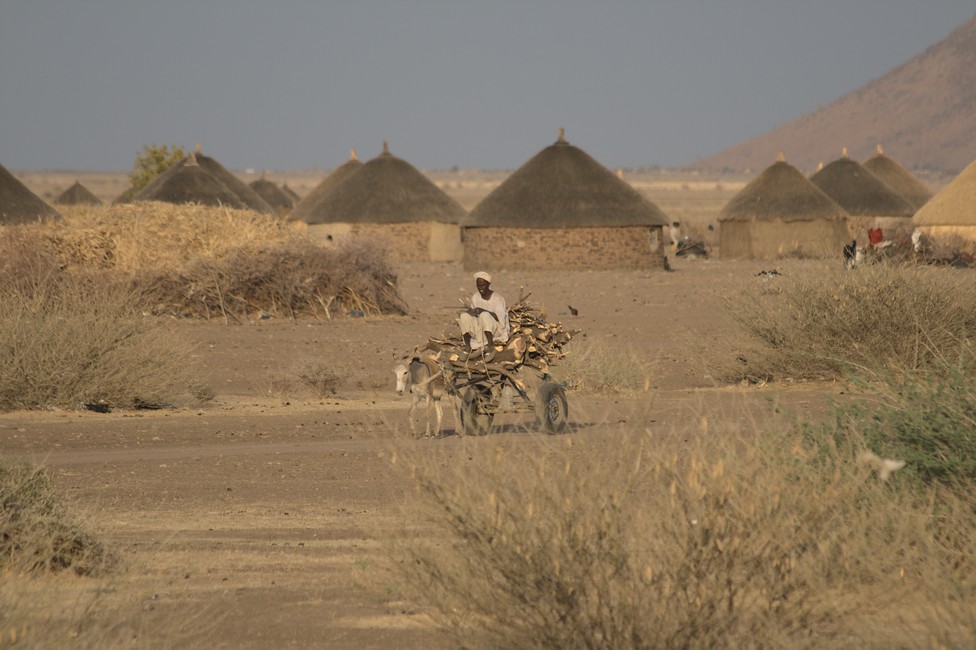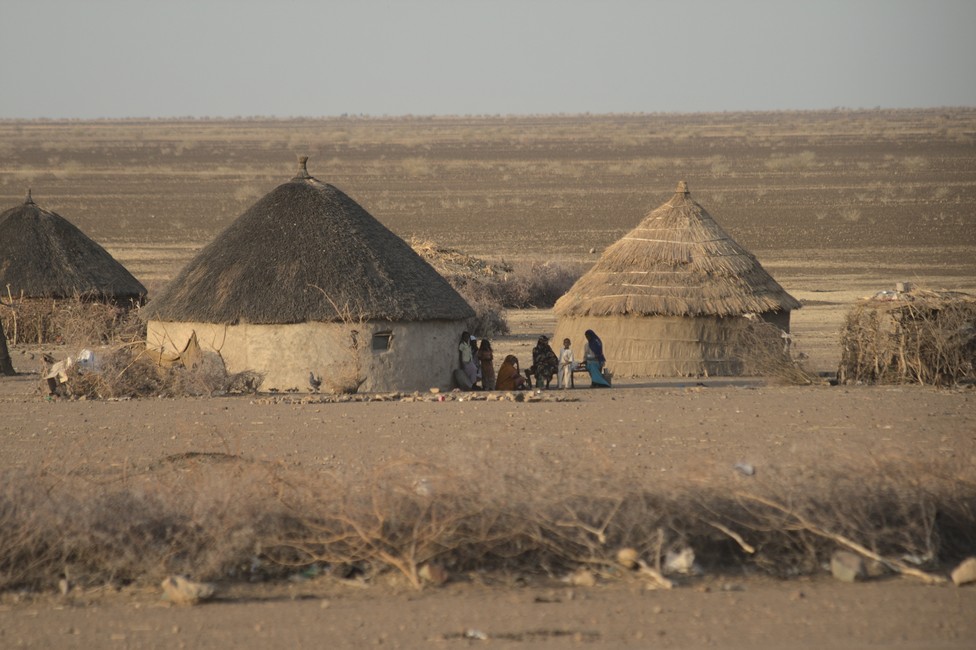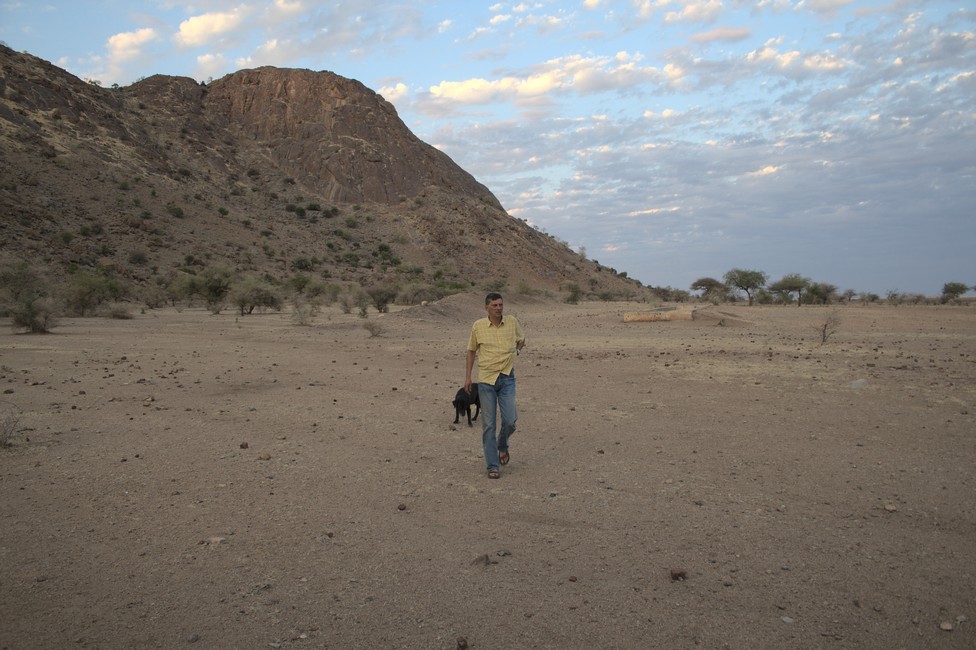Gedaref is the last town before the border. From Khartoum we head towards Ethiopia. Soon after Khartoum Africa is changing and there appear the first round thatched huts as they are so typical for black Africa.

Since there are no campsites and we do not make it up before dark to the border, we are looking for a place away from the road in the bush. Bush camping is no problem in Sudan, the people are very friendly and you can sleep undisturbed.
Early in the morning we go on, if all goes well and the roads are good, we are crossing the border into Ethiopia today.
Bine reports on the radio that their last Sudanese pounds have to be exchanged. Gedaref is the last major town before the Ethiopian border, there is also a bank. We have to look for it.
We stop in a side street and wait for Bine. Gedaref is for Sudanese conditions, a larger city. It is the center for the agricultural hinterland, Sorghum and sesame is cultivated here. Even cattle breeding is done in the region, especially by nomadic Arabs.
With the donkey cart, the grain is brought into the city to the many mills that contribute as a small craft on the urban economy.
Soon all shopping is done and we move on. A strange-looking landscape accompanied us. There is little traffic, people and domestic animals are the most common road users in this part of Sudan.

Although peace reigns at the moment, it there has been disturbances again and again. Reasons are lack of political representation of communities in the national government and a low investment in the development of Eastern Sudan.
Animals have right of way, as everywhere in Africa, they are after all, the livelihood of the people here, an animal run over is a worse offense than to hurt or to kill a man – common in all of Africa.

Patiently we wait until the herd is crossing the road. From a caretaker is no trace.
Suddenly we discover the boy, who should take care of the camel herd. He must have forgotten that his animals are crossing the streets. The boy is maybe 8 to 10 years and has a responsible job. Spontaneously, the term child labor comes into our mind. But this concept is one of the western world. Child labor is not a concept for the Sudanese. They have a different view of the world, other necessities, children simply grow up in the family. Slowly they are growing up with the tasks and I get the impression that they are not so unhappy. Reading and writing most of them learn in the Islamic school.
In brisk drive we approach the border. Already early in the afternoon we crossed the border and found a place to sleep on the Ethiopian side of the border.